We first reported on Speedbird in September 2020 when they were a small company delivering food in the traffic-crazy city of Sao Paulo, Brazil. It was the middle of the COVID-19 pandemic, and people were flocking to food delivery services as an alternative to exposing themselves to possible contagion.
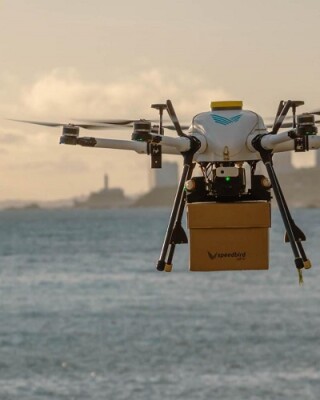 Three years later, Speedbird is a powerhouse with nascent operations in seven countries, growing manufacturing facilities, and delivering innovation at every step of the way. We had the opportunity to sit down with Manouel Coelho, co-founder and CEO of Speedbird during the recent Drone Summit Medellin, a Colombian uncrewed aviation event that took place in that city on November 2nd and 3rd.
Three years later, Speedbird is a powerhouse with nascent operations in seven countries, growing manufacturing facilities, and delivering innovation at every step of the way. We had the opportunity to sit down with Manouel Coelho, co-founder and CEO of Speedbird during the recent Drone Summit Medellin, a Colombian uncrewed aviation event that took place in that city on November 2nd and 3rd.
“We’ve come a long way since our first chat,” said Coelho. “We took the crawl-walk-run approach, and it paid off. From day one we were convinced that aircraft certification, coupled with operational excellence, was the key to success, and relentlessly implemented that strategy. Now we have a drone with the Type Certificate (TC) from the Agência Nacional de Aviação Civil or ANAC in Brazil and have embarked on new initiatives as an aviation company.”
Coelho’s enthusiasm is contagious and listening to the stories of the last three years was the equivalent of reliving the trajectory of an entire industry that has matured considerably in just 36 months.
“In early 2020, we received the experimental certificate (CAVE) from ANAC and with that we started operations to accumulate data eventually proving to the authorities that our operations and our aircraft were worthy of the TC,” reported Coelho. “We flew thousands of missions and refined our processes and workflows as well as our aircraft to the point that in January 2022 our DLV-1, a lightweight, six-rotor vehicle, that can carry up to 6.6 pounds of payload received the TC from ANAC in the form of a CAER (Special RPA Certificate of Airworthiness).”
From the beginnings of crewed flight in the early 1900s, Brazil has played a key role in the development of the industry with people like Alberto Santos Dumont, an inventor and early aviator who specialized in lighter-than-air dirigibles, and eventually evolved into heavier-than-air and motorized aircraft holding the record for the first unaided takeoff of a powered airplane. Also, Aida de Acosta, was the first woman ever to pilot a motorized aircraft, a Santos-Dumont early model, six months before the Wright brothers’ flight. If you ask a Brazilian today, Santos Dumont is the real father of aviation!
“Aviation is in our DNA,” Coelho said with pride. “Brazil has been a strong presence in crewed aviation from day one and now with our own aerospace industry well established in the country, we are uniquely positioned to take a leadership position worldwide in uncrewed aviation. By obtaining the TC certificate we are giving an example of how to conduct operations without a pilot but maintaining a strict philosophy of safety and procedures that is more typical of piloted missions.”
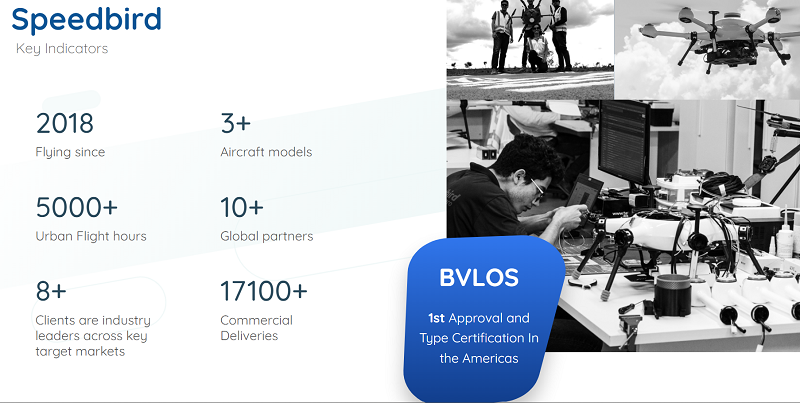 Speedbird has now taken a more prominent international role by expanding into Israel and the United Kingdom, where they won the bid to deliver the Royal Mail to remote locations in that country.
Speedbird has now taken a more prominent international role by expanding into Israel and the United Kingdom, where they won the bid to deliver the Royal Mail to remote locations in that country.
“We are very proud of our partnership with Skyports in the United Kingdom and through this association we won the contract to deliver the mail to remote islands that always had trouble with weather and unpredictable conditions,” Coelho said. “The fact that our certified aircraft can do the job in difficult terrain was a plus when winning the contract with the Royal Mail. These isolated islands have always struggled with reliable mail service due to adverse weather conditions and distance from the mainland.”
Letters and parcels are transported from Royal Mail’s Kirkwall delivery office in the mainland to the town of Stromness, where drones deliver them to Royal Mail staff on the islands of Graemsay and Hoy. Postal workers then collect the cargo and follow their normal delivery routes. This is a business model that can be applied to any place on Earth with comparable conditions.
“We had a similar experience in Israel but due to completely different reasons,” Coelho said. “The skies over Israel are one of the most monitored and carefully managed in the world and the Israelis are real pioneers in UAV technology. Through our great partners Cando Drones and Dronery we were invited to demonstrate our capabilities in a actual airport environment and just two miles from the border and we passed the test with flying colors. Now we are working with the authorities to expand regular operations in that country.”
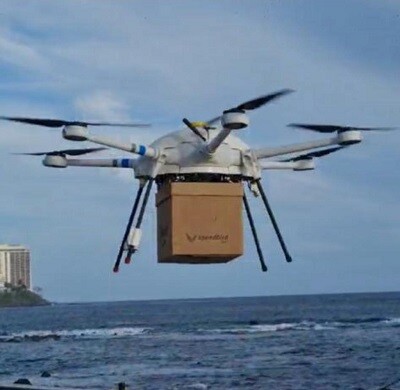 In the meantime, their delivery operations in Brazil are going at full throttle with an average of 60 to 90 flights a day in selected regions of the country. Coelho had the opportunity to remotely show us in real time a delivery in the city of Aracaju, capital of the state of Sergipe and gifted with a beautiful, but challenging, bay.
In the meantime, their delivery operations in Brazil are going at full throttle with an average of 60 to 90 flights a day in selected regions of the country. Coelho had the opportunity to remotely show us in real time a delivery in the city of Aracaju, capital of the state of Sergipe and gifted with a beautiful, but challenging, bay.
“We monitor and record every flight from takeoff to delivery and back and then present the data to ANAC to keep a constant record of our operations,” he said. “We hope this overabundance of flight data will serve to confirm that our delivery operations are safe and will be the foundation of a more expansive service in Brazil and other countries.”
Coelho and his team at Speedbird have approached the business of non-piloted operations with the same seriousness and professionalism that piloted operations have been conducted for many decades and the results speak for themselves. It is that aviation DNA in their blood that drives Speedbird to reach levels of excellence that are sorely needed in this industry to make sure the regulators will one day allow crewed and uncrewed aviation to share national airspaces around the world.


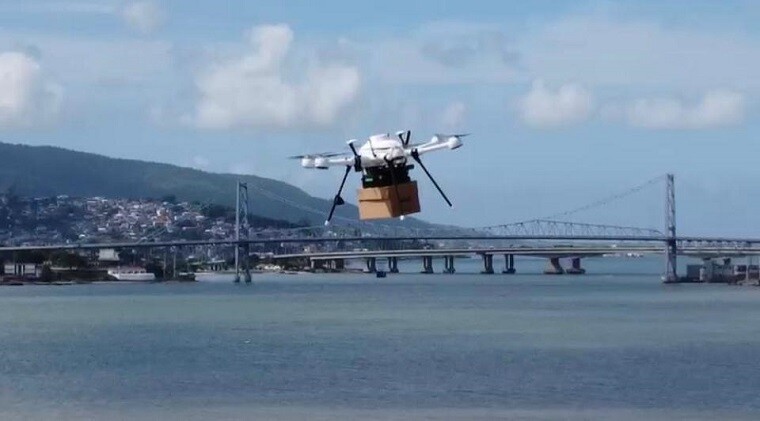


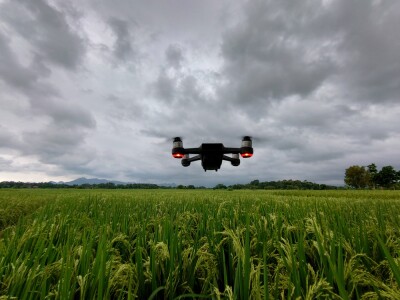








Comments